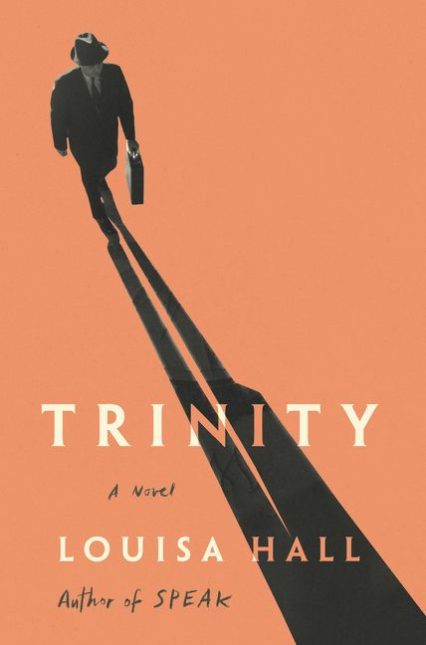In the run up to the announcement of the winner of this year’s International Dylan Thomas Prize, Wales Arts Review will be publishing reviews of the six shortlisted titles, written by the students of the IDTPrize module at Swansea University. Next up is Daniel Morgan’s review of Louisa Hall’s novel Trinity (Ecco).
The module is the first English academic study in the world dedicated to a major literally prize and includes access for the students to authors and members of the publishing industry who run tutorials on subjects ranging from book marketing and publicity, to book prize logistics and sales in publishing to help students to explore how literary prizes help to produce, promote and celebrate contemporary writing.
 Louisa Hall’s Trinity is inspired by Kai Bird and Martin J. Sherwin’s biography American Prometheus: The Triumph and Tragedy of J. Robert Oppenheimer (2009) and is written from seven fictional viewpoints. These seven fictional characters interact with Robert Oppenheimer – creator of the atomic bomb – in different ways. Some are lifelong friends, others spend their days watching him from afar. But, how are we to have a novel about Oppenheimer if a narrator never so much as exchanges a word with him? Trinity focuses the reader’s attention on who he was, and not just what he did.
Louisa Hall’s Trinity is inspired by Kai Bird and Martin J. Sherwin’s biography American Prometheus: The Triumph and Tragedy of J. Robert Oppenheimer (2009) and is written from seven fictional viewpoints. These seven fictional characters interact with Robert Oppenheimer – creator of the atomic bomb – in different ways. Some are lifelong friends, others spend their days watching him from afar. But, how are we to have a novel about Oppenheimer if a narrator never so much as exchanges a word with him? Trinity focuses the reader’s attention on who he was, and not just what he did.
There is required a certain suspension of disbelief, and a knowledge that Oppenheimer won’t get a lot of screen-time. He’ll be spoken of at length, used as a mirror, and referred to in a myriad of ways both flattering and not, but he doesn’t dominate the text. His presence, however, bleeds from the background and permeates every level of the prose. Oppenheimer is exposed as a scientist, a philanderer, a risk to national security, a genius, a chain smoker, and a man of such convolution that it is possible to say that no one ever truly knew him, or ever had a chance of doing so. But, what this book does, that none other has dared to achieve, is to ask what he was underneath all of those things. Under all of the layering of titles and monikers, who was he, really? In what moments was his truest self revealed? If these are the questions about Oppenheimer that you find yourself asking, after the biographies have been exhausted and your fingers are sore from traversing the internet, then picking up Trinity may just be the only thing that satiates you.
There are several moments that stand out in the novel and attribute a certain yet-unseen humanity to a man who’s been cast in the granite of his accomplishments. Moments where he takes a stranger down to the water’s edge in Saint John to show her the green flash, so that it may inspire her painting. Moments where he leaves a party full of admirers and friends to help his unsteady wife. Moments where he kneels in the dirt and offers a handkerchief so that a woman on the brink of personal implosion may wipe the vomit from her lips, before walking her home. And all these not because they are deeds for which he’ll be pictured on the front of Time Magazine yet again, but instead, because outside of that papery frame, that snapshot of a stranger that the whole world feels they know, he was a real man, in possession of humanity, and above all else, kindness. These are the moments for which you must read Trinity.
You can listen to the IDT Prize podcast interview with Louisa Hall here.










